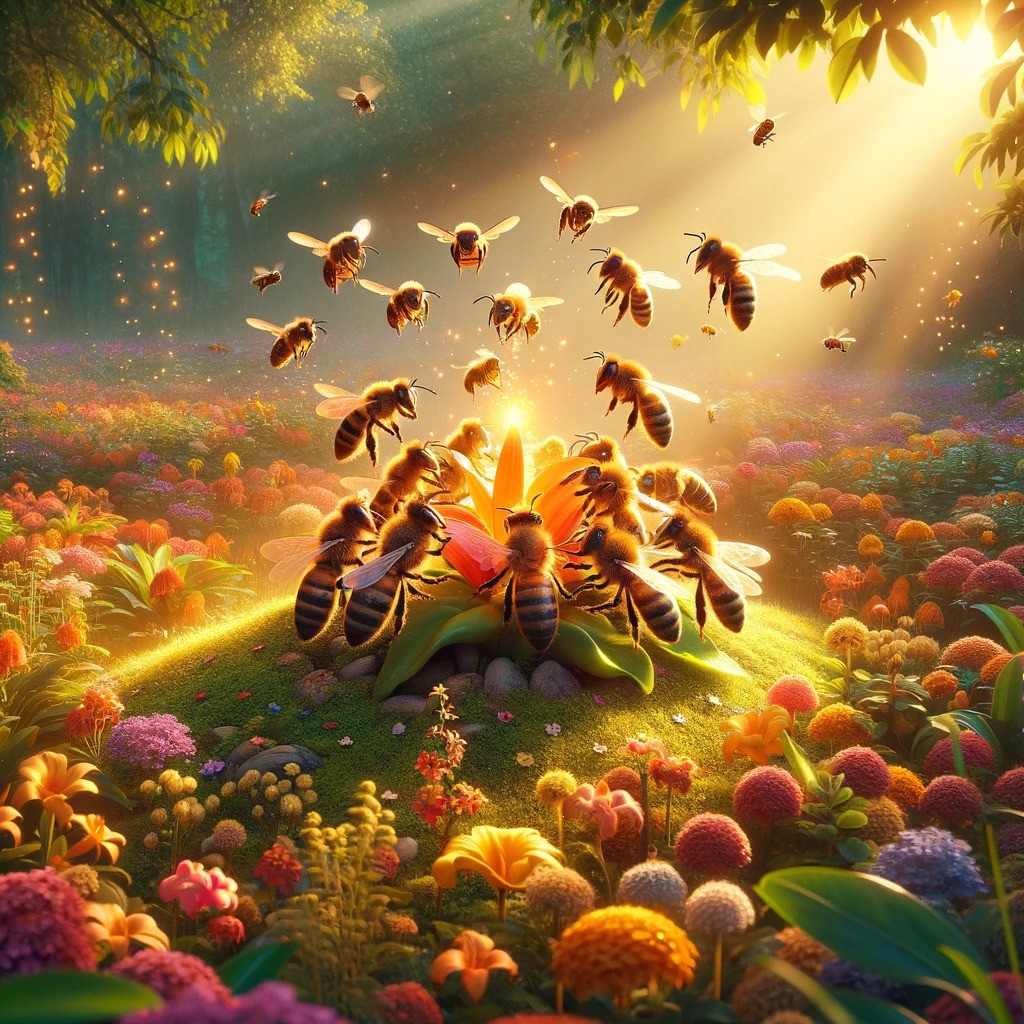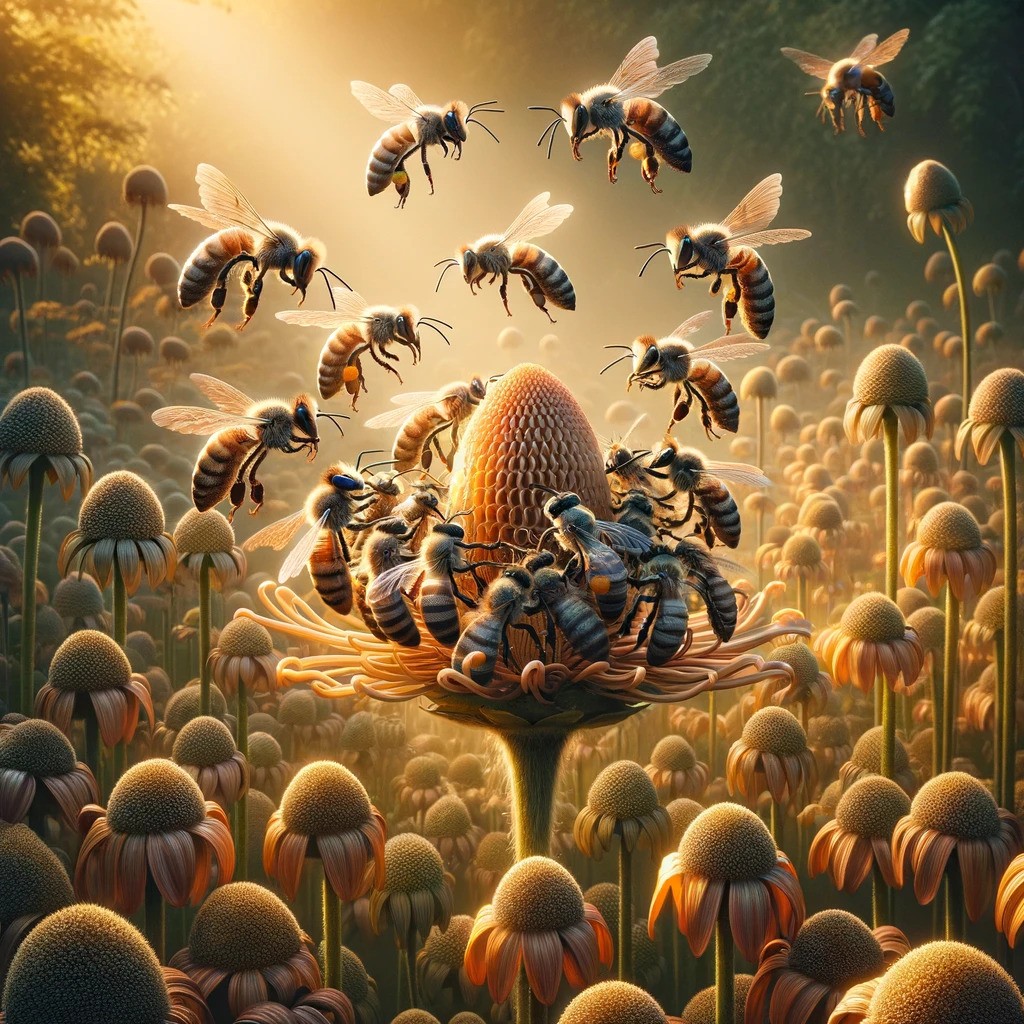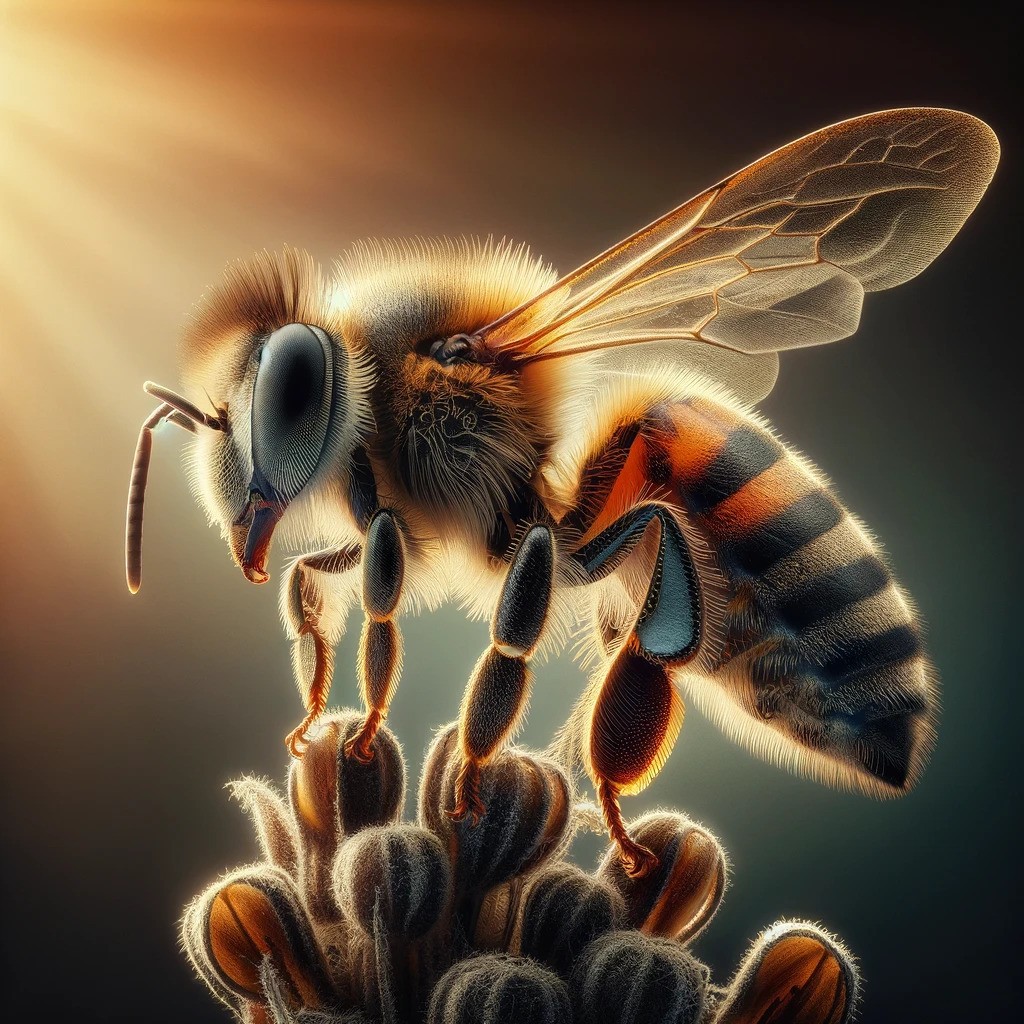If you’re fortunate enough to have an apiary in your yard, you’ll quickly notice how it transforms into a hub of activity for the surrounding ecosystem.
Bees are not just important for pollination, but they also play a pivotal role in attracting and feeding other creatures, big and small.
Bees as Key Players in the Food Web
Honeybees are essential to the balance of nature, and their presence creates ripple effects throughout the ecosystem.
While they’re hard at work pollinating flowers and gathering nectar, they also indirectly support a variety of other animals.
Birds and Small Mammals: Some bird species are drawn to the flowers that bees pollinate.
Others, such as bee-eating birds, are attracted directly to the bees themselves.
Meanwhile, small mammals like mice and shrews might forage for dropped pollen or crumbs of honey left behind during hive inspections.
Insects and Predators: Bees’ pollen and nectar collection provide sustenance for not just bees themselves but also many other insects like butterflies, beetles, and even wasps.
Additionally, predatory insects, such as spiders and dragonflies, may be drawn to the apiary as they hunt for bees or other small creatures attracted by the hive.
Animals That Consume Dead Bees
As the natural life cycle progresses, not all bees make it back to the hive.
Some fall victim to age, disease, or predators.
Interestingly, these deceased bees also play a role in the ecosystem, becoming a food source for several animals:
Hedgehogs: These small mammals are opportunistic feeders and may consume dead bees they find on the ground.
Ants: Ant colonies often scavenge around hives for dead bees and other small insects, especially when food sources are scarce.
Slugs: These slimy creatures are known to consume anything organic, including dead bees they might encounter near the hive.
The Pollination Benefit for Your Garden
If you’re an avid gardener, having an apiary nearby can be a dream come true.
Bees naturally pollinate fruit trees, flowers, and vegetables, leading to healthier plants and greater yields.
As a bonus, other beneficial pollinators like butterflies and hoverflies may be attracted to your yard, creating a flourishing and diverse garden.
Balance and Biodiversity
While the bees are busy enhancing the local ecosystem, it’s important to maintain balance.
Too much interference from predators or honey robbers can disturb the hive’s harmony.
By observing your apiary, you’ll learn to appreciate the delicate balance that exists between the bees and the wildlife they support.














